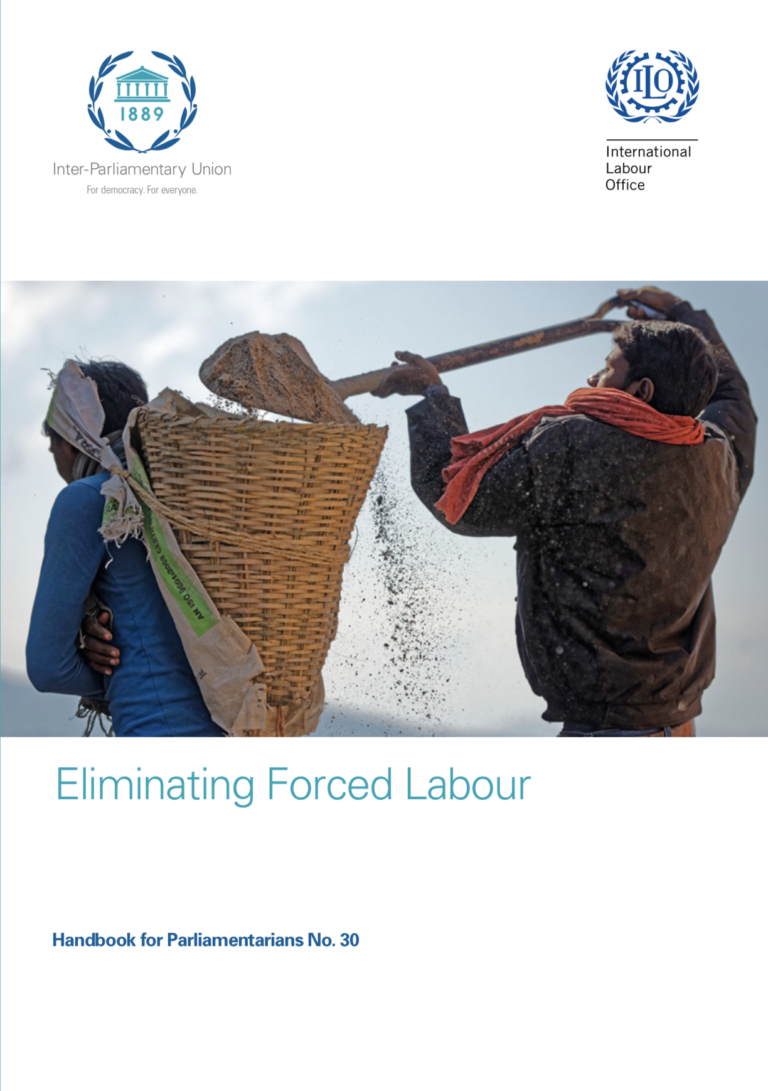This handbook aims to help parliamentarians to make their contribution to global efforts to effectively combat the scourge of forced labour, a scourge still affecting 25 million people globally.
Despite the widespread belief that forced labour is a thing of the past, it now manifests itself in various forms the world over. The ILO estimates that 24.9 million people, 4.3 million of whom are children, are in forced labour, and that women and girls are disproportionately affected.
But do we really know what forced labour is and whom it affects? Would we recognize victims if our paths crossed? Are parliamentarians aware of the key role they can and should play to combat this scourge?
This handbook responds to these questions with facts, figures and real-life examples. It outlines the practical measures and actions that Parliamentarians can take, such as: enacting legislation; adopting budgets; the exercise of your oversight over the actions of governments; and, importantly by ratifying and implementing the 2014 ILO Forced Labour Protocol, with its provisions aimed at preventing forced labour, protecting victims and ensuring access to justice and remedies.

